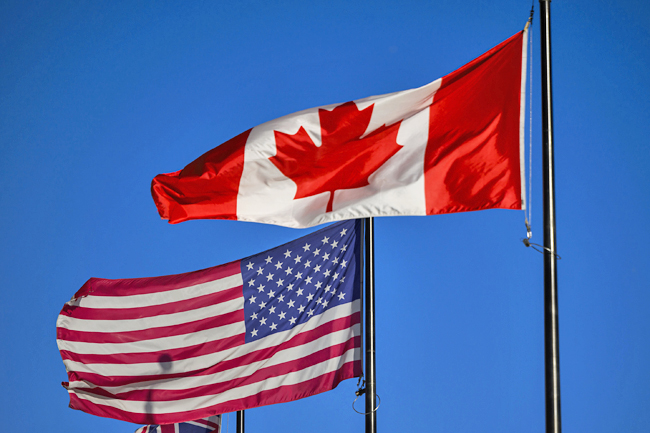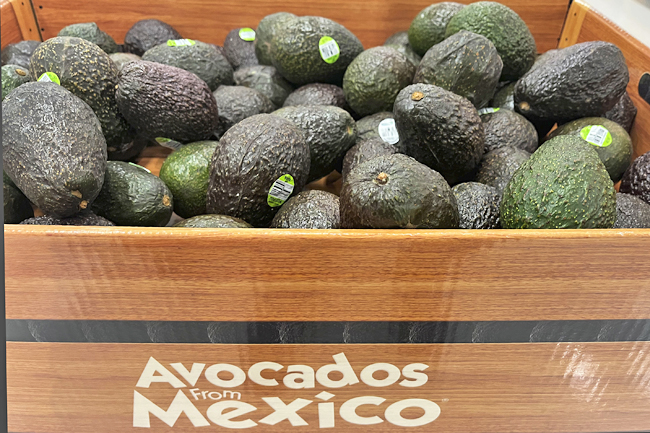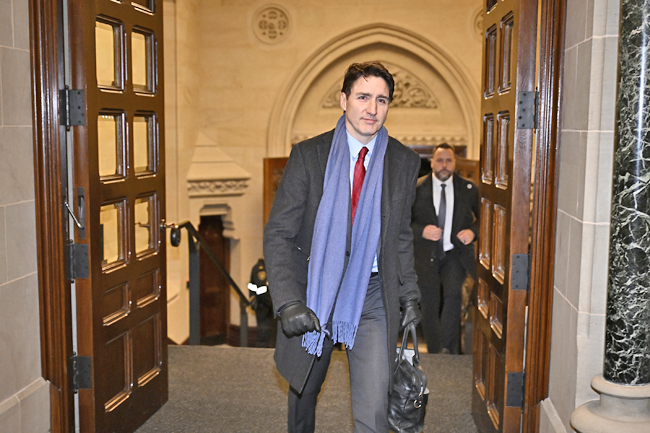TORONTO (AP) – Canada and Mexico ordered retaliatory tariffs on American goods in response to sweeping tariffs imposed by United States (US) President Donald Trump, and businesses and consumers in both countries questioned on Sunday how the new trade war might affect them.
Canada initially ordered tariffs of 25 per cent on American imports starting today, including beverages, cosmetics and paper products worth CAD30 billion (USD20 billion). A second list of goods was to be released soon, including passenger vehicles, trucks, steel and aluminium products, certain fruits and vegetables, beef, dairy products, aerospace products and more. Those goods were estimated to be worth CAD125 billion.
“We can play the game all they want,” Trump said. He said he plans to speak with his Canadian and Mexican counterparts.
Mexico has so far said only that it will impose retaliatory tariffs, without mentioning any rate or products.
Canadian Prime Minister Justin Trudeau and Mexican President Claudia Sheinbaum spoke by phone after Trump’s administration imposed the new tariffs – 25 per cent on goods from Canada and Mexico, with a lower rate of 10 per cent for Canadian oil, and 10 per cent on imports from China.
Trudeau’s office said in a statement that Canada and Mexico agreed “to enhance the strong bilateral relations” between their countries. Canadian officials have had extensive dialogue with their Mexican counterparts, but a senior Canadian official said he would not go as far as to say the tariff responses were coordinated.



“Now is the time to chose products made right here in Canada,” Trudeau posted on Sunday on X. “Check the labels. Let’s do our part. Wherever we can, choose Canada.”
Canada is the largest export market for 36 states, and Mexico is the largest trading partner of the US.
Canada and Mexico ordered the tariffs despite Trump’s further threat to increase the duties charged if retaliatory levies are placed on American goods.
“We’re certainly not looking to escalate, but we will stand up for Canada,” Trudeau said.
Some authorities in the provinces of Ontario, British Columbia, Quebec, Manitoba and Nova Scotia planned to remove some American drink brands from government store shelves.
“Not anymore,” Ford said in a statement. On social media, people were sharing suggestions for alternatives to American products.
Trudeau addressed Americans directly, saying they the tariffs “will have real consequences for you”.
Trump responded, criticising Canada’s trade surplus with the US and contending that without that surplus, “Canada ceases to exist as a viable Country. Harsh but true! Therefore, Canada should become our Cherished 51st State. Much lower taxes, and far better military protection for the people of Canada – AND NO TARIFFS!”
Canadians are feeling a sense of betrayal. Trudeau reminded Americans that Canadian troops fought alongside them in Afghanistan and helped respond to many disasters in the US, including wildfires in California and Hurricane Katrina.
Canadian hockey fans booed the American national anthem on Saturday at two National Hockey League games. The booing continued on Sunday at an NBA game in Toronto where the Raptors played the Los Angeles Clippers.
One fan at the Raptors game chose to sit during the anthem while wearing a Canada hat. Joseph Chua, who works as an importer, said he expects to feel the tariffs “pretty directly”.
“I’ve always stood during both anthems. I’ve taken my hat off to show respect to the American national anthem, but today we’re feeling a little bitter about things,” he said, adding that he will start to avoid buying American products.
In Mexico, public statements on the tariff threat have been limited to saying the government is prepared and that it will ensure the country is respected.
In 2019, Mexico avoided Trump’s tariff threat by adding immigration control to the responsibilities of its newly formed National Guard, but this time the accusation that Sheinbaum’s administration has alliances with criminal groups pushed her to punch back.
She called on the US to clean up its own problems with drugs and guns and to keep its nose out of Mexico. Trump said he was imposing the tariffs to stop the flow of illegal immigrants and drugs across both the southern and northern US borders.
In the streets, Mexicans were trying to absorb the announcement. 40-year-old salesperson Carlos Barona said that Trump’s decision did not worry him and that he trusts in the actions of Sheinbaum’s administration.
“If we survived the pandemic and everything that it brought, I think we will survive this,” he said.





